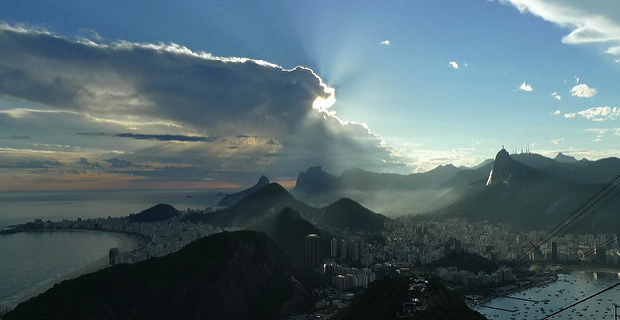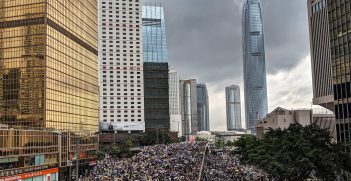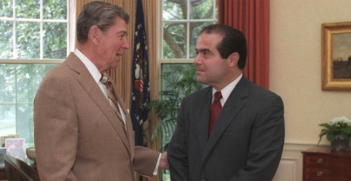Reflections on the Rio Olympics

The Rio de Janeiro Olympic Games are finished and now the time to reflect upon the city’s performance. As well as great athletic achievements and controversy over the use of performance-enhancing drugs, Rio will be remembered for significant logistic, safety and security issues.
How security issues evolved
Security issues were front and centre over the last few weeks, and the sporadic acts of violence towards athletes and tourists beg the question of why this occurs in Rio. A culture of corruption and unaddressed social inequality exists in Brazil, one which contributes to the endemic violence that occurs not only in Brazilian favelas (slums), but also spills into mainstream society. The fact that Brazilian institutions have historically being governed by elites and for elites has caused a political vacuum to develop in the favelas. Corruption and the political neglect of those who live below the poverty line have allowed drug lords to establish a parallel power structure in these areas. This reality has greatly compromised law and order for the entire population. Violence in the city of Rio is like a cancer that has spread out from particular areas, and not even the most advanced medical treatment will be sufficient to reverse such a process.
Lack of law and order
Australian Paralympian Liesl Tesch made international headlines when her bicycle was taken from her at gun point in late June. The athlete was on a fitness ride in preparation for the competition when two men approached her demanding money. One man pulled out a gun and shoved her in order to get the bicycle, while another wrestled with the team physiotherapist. What makes this incident even more distasteful is the fact that there were witnesses to the robbery and none attempted to help or intervene.
There is also the story of the four US swimmers who claimed to have been robbed at gunpoint in the middle of the games. These swimmers originally claimed to have been confronted by criminals wearing police uniforms and pretending to be from the local law enforcement agency. This story has subsequently been found to be a fabrication, and evidence produced by Brazilian law enforcement agencies shows that it was one constructed to cover up acts of vandalism committed by the swimmers themselves. What is remarkable is that this story initially sounded plausible to the US Olympic delegation and to the world’s media, a potent reflection on the general lack of safety and order on the streets of Rio.
The poor security situation in Rio has been well documented throughout the games with a myriad of violent crimes reported by the media. This can be attributed to both the endemic corruption of Brazilian institutions and the indifference of state authorities. These structural failures have exposed athletes and tourists to the risk of physical harm and greatly compromised Rio’s reputation as having hosted a successful Olympics.
Infrastructure problems
In addition to poor security, infrastructure problems have plagued the Rio Olympics. Initially, the Australian delegation refused to move into the Olympic village due to serious electrical and plumbing problems. The Australian Chef de Mission Kitty Chiller stated: “I have never experienced a village in this state—or lack of state—of readiness at this point in time”. It is relevant to mention that this was Chiller’s fifth Olympic engagement.
Moreover, the Australian team spokesman Mike Tancred mentioned that 10 out of the 31 Olympic village buildings were deemed to not be suitable for habitation. He stated that there were plumbing issues such as leaking pipes as well as electrical problems. Tancred also mentioned that when a stress test was conducted by turning on the taps and flushing toilets at the same time water flowed from the walls.
Other Olympic committees have praised the beauty of the villas, but at the same time have acknowledged the security and health hazards that the village has presented for their country’s delegations. Some teams even resorted to hiring local tradesmen to correct infrastructure problems
Water contamination
Another pressing problem for the safety of both athletes and tourists during the Rio games was water contamination. Rio’s waterways are highly polluted, with testing by the Associated Press on the eve of the games finding that water at the sailing and rowing venues—as well as the city’s world-famous beaches—was contaminated with sewage and harmful viruses and bacteria. Experts strongly recommended that those visiting the cidade maravilhosa (marvellous city), be they athletes or tourists, avoided dipping their heads into the water in any of Rio’s beaches or lagoons. Athletes took precautions to prevent contamination such as taking antibiotics, bleaching oars, and wearing plastic suits and gloves to avoid water contact.
Terrorism and the Rio Olympics
The threat of terrorism was also prominent in the the lead-up to the games and through their duration. In April this year this was articulated by the director of counter-terrorism from the Brazilian intelligence agency (ABIN) when he confirmed a threat to the Rio Olympics made by ISIL. It was claimed that Maxime Hauchard, an ISIL operative in France and one of the masterminds behind last year’s Paris attacks, had placed a terrorist threat against Brazil on Twitter. According to official sources, Hauchard tweeted soon after the Paris attacks “Brazil, you are next”. ABIN then released an official document accessing the risk of a terror attack during the Rio Olympics. The evidence listed on this document raised the terror alert in the city and the number of international intelligence agency representatives in Rio increased from approximately 80 to approximately 100 personnel. While a terrorist attack did not take place, the significant mobilisation required to avoid a terror attack and to increase the confidence of participants and visitors demonstrates the resources required to host a modern Olympics.
In summary, infrastructure problems and law and order issues caused significant dissatisfaction during the Rio Olympics. There are reports that security checkpoints kept many attendees waiting for several hours, and that fears of robberies, shootings and bombs outside the Olympic arena left some visitors rather fearful and anxious. On the opening day alone, athletes were competing to an empty audience as spectators were delayed by long and exhaustive security checks. This has compromised the city’s international reputation as the host of large events. The main question now is whether political instability, rampant criminality and frail infrastructure will also plague the upcoming Paralympics.
Flavia Bellieni Zimmermann holds a Bachelor of Laws with Honours from the Pontifical Catholic University in Rio de Janeiro and a Graduate Diploma of International Relations and National Security from Curtin University, Western Australia. She is currently a PhD candidate at the University of Western Australia Centre for Muslim States and Societies and also an intern with the AIIA for WA.
This article is published under a Creative Commons Licence and may be republished with attribution.





